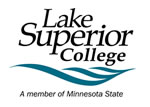
Procedure 3.10.1 - Academic Program/Department Review
Part 1: Purpose
This procedure is to comply with Lake Superior College (LSC) Policy 3.10 Academic Program/Department Self-Study. The procedure outlines the process for programs and departments to evaluate their performance and identify goals and action plans for the future through completion of the self-study.
Part 2: Definitions
Subpart A: Department
An academic unit that provides courses in a specific content
area that supports an academic program.Subpart B: Program
A cohesive arrangement of college-level credit courses and experiences designed to accomplish predetermined objectives that leads to a degree, diploma, or certificate.
Subpart C: Representative
The representative shall be defined as follows:
- In a program with a designated program coordinator or director, that person shall be the representative.
- In a program or department with only one UFT faculty member, that person shall be the representative.
- In a program or department with multiple faculty UFT members or no UFT faculty members, the designation of the representative will be made in consultation between faculty members and their academic dean.
Part 3: Principles
The primary intent of academic program/department self-study is to continuously improve student success, ensure high-quality instruction, encourage equitable practices in learning environments, promote the LSC mission, and demonstrate stewardship of college resources.
Part 4: Elements of Academic Program/Department Self-Study
Academic program/department self-study shall consist of the program or department’s review and analysis of the following elements:
Subpart A: Core Data
LSC will supply the academic deans and program/department representatives with core data related to the following:
- Enrollment figures
- Student Success Metrics
- Department/program costs
- Placement data (programs only)
Subpart B: Program and Department Specific Information
Programs and Departments may provide the following data:
- Accredited program self-studies or annual reviews
- Accreditation and/or articulation agreements
- Advisory committee membership list and annual minutes
- Program or department partnerships (both internal and external)
- Program or department plans for and results from assessment of student learning outcomes
- Grants received
Subpart C: Program/Department Self-Study Process
The academic dean, the representative, and the program/department faculty shall follow the process below to complete a self-study cycle:
- Read the Instructions for Self-Studies located on the Academic Assessment and Self Studies webpage in the Employee Portal
- Complete the appropriate Self-Study Guide
- Submit the self-study draft to the dean
- Finalize the self-study
- Submit the self-study and presentation two weeks before scheduled meeting with the President’s Cabinet within Year One of the self-study cycle.
Part 5: Academic Program/Department Self-Study Cycle
All academic units are required to perform a self-study on a regular basis. All academic deans will develop a rotation schedule for academic review within their respective areas. The dean of the accredited programs will consult faculty to determine the self-study cycle. The self-study cycle will be published on the Academic Assessment and Self-Study webpage in the Employee Portal.
History
Date Implemented: Oct 12, 2011
Date Updated: May 9, 2014
Date Reviewed/Updated: March 29, 2023
President's Signature Date: March 29, 2023

Related Policies/Procedures
Chapter 3: Academics
- 3.1 - Student Rights and Responsibilities
- 3.3 - Assessment for College Course Placement
- 3.4 - Admissions - UNDER REVIEW
- 3.4.1 - Undergraduate Admissions - UNDER REVIEW
- 3.4.2 - Immunizations
- 3.5 - Post-Secondary Enrollment Option
- 3.6 - Student Code of Conduct
- 3.8 - Student Complaints and Grievances
- 3.10 - Academic Program/Department Review
- 3.11 - Add/Drop and Withdrawal
- 3.13 - Fresh Start
- 3.17.1 - Credit Load
- 3.17.2 - Grading System
- 3.17.3 - Deans' List - RESCINDED
- 3.17.4 - Non-attendance
- 3.17.5 - Course Grade Appeals
- 3.18 - Assignment of Student Credits
- 3.21 - Undergraduate Course Credit Transfer
- 3.31 - Advisory Committees
- 3.32 - Faculty Credentialing
- 3.35 - Credit for Prior Learning
- 3.36 - Academic Programs
- 3.38 - Career Information
- 3.39 - Visitors in the Classroom
- 3.41 - Nursing Admissions
- 3.41.1 - Nursing Programs Admissions - RESCINDED - SUPERSEDED BY 1.0 - Admissions Process for Nursing Students
- 3.50 - Institutional Review Board

